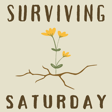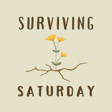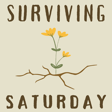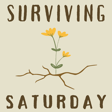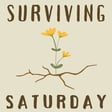
Sue Cunningham: Finding Poetry in Unexpected Places
What if poetry isn’t just for English majors and literary journals—but for anyone trying to make sense of their story?
In this episode, Wendy sits down with longtime friend, counselor, and poet Sue Cunningham to talk about the unexpected ways poetry has shown up in their lives—and how it’s helped them make sense of their stories. They talk about the moments that drew them toward writing, the wounds that made it feel out of reach, and the slow return to creative expression as a form of healing, honesty, and hope.
Sue shares how a flyer on a coffee shop bulletin board led her back to poetry, and Wendy reflects on a college experience that nearly convinced her to give it up for good. They also reflect on poetry as protest, as presence, and as a way to say things that are too complex—or too sacred—for ordinary language.
This conversation is gentle, grounding, and full of quiet encouragement. Whether you consider yourself a writer or not, it just might help you see your own story a little differently.
Connect with Us!
Follow @nurturecounselingnc on Instagram
Visit nurturecounseling.net
